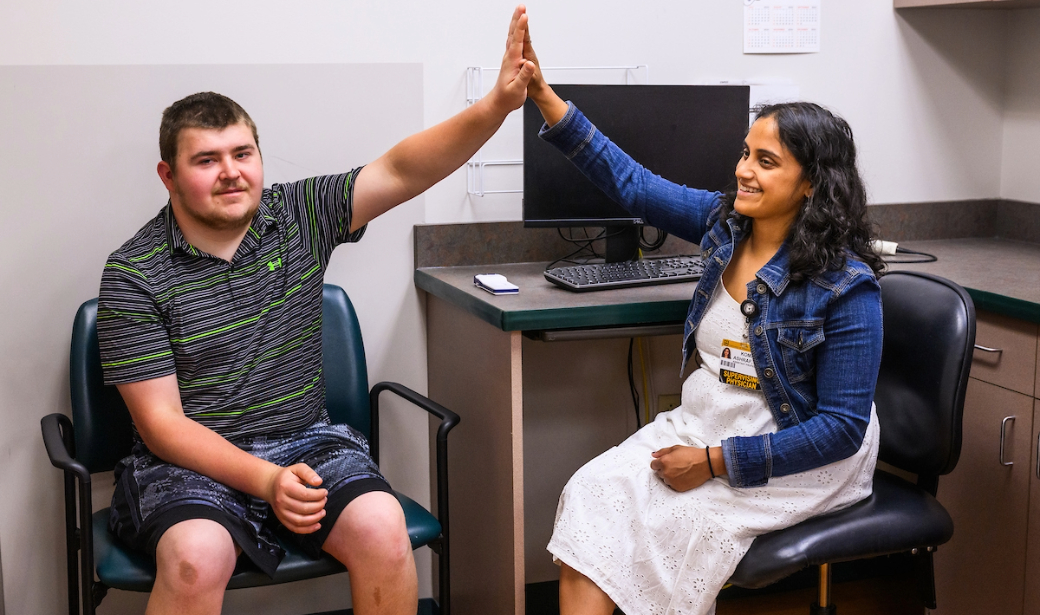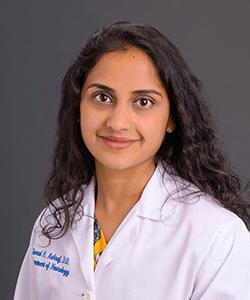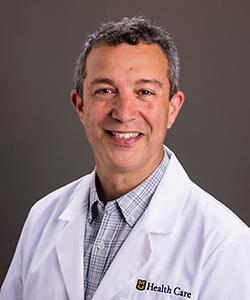Becky Gooch would feel an aura before one of her absence seizures, a sinking feeling of dread in her stomach that was her sign to sit down in an armchair in her living room and alert her husband, Kevin.
Stress, poor sleep and too much caffeine were things she noticed contributed to her seizures.
“I had my first seizure in 2004,” Becky said. “One of my children found me, so then I started going to the doctor to find out what was going on, but they didn't know what was wrong.”
Epilepsy nearly kept Becky confined to her house. After several seizures at Wal-Mart, the grocery store and at work, Becky had to quit her job. The worst seizure happened when she was on a plane, flying to see family.
“They had to emergency land the plane, and after that, I was terrified to get on airplane for quite a while,” she said. “My husband and my kids didn’t want me going anywhere, which I can understand. It was embarrassing and scary.”
Dylan Davenport knew he was having a seizure because his right arm would tingle and go numb. He avoided fluorescent lights because they were a trigger.
“I remember the first one, I was in the library with my classmates doing computer assignments, and I kind of fell over,” Dylan said. “People thought I was acting smart at first.”
His epilepsy stopped him from continuing his education after high school. Dylan couldn’t drive his truck, play golf, or do most other things that young people enjoy.
About 1% of Americans — 33 million people — have some form of epilepsy. A third of that group, an estimated 11 million Americans, have epilepsy that doesn’t improve with medication, called refractory or medication-resistant epilepsy.
Becky and Dylan have different forms of epilepsy that cause different kinds of seizures, but both resisted medications. And both had experienced seizures for more than eight years without a plan to become seizure-free until coming to MU Health Care. As a Level 4 Epilepsy Center, MU Health Care offers the highest level of care for epilepsy.
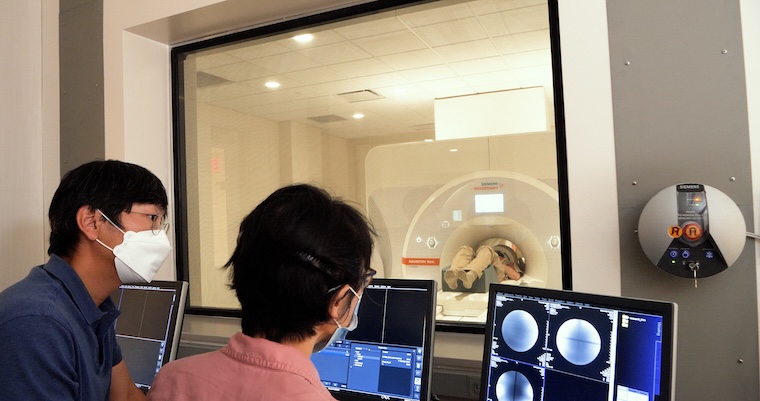
One of the most important tools is access to North America’s most powerful MRI scanner: The Siemens Healthineers MAGNETOM Terra 7 Tesla scanner. A Tesla is a scientific unit that measures magnetic field strength; traditional MRI machines create images of the body with 1.5 Tesla or 3 Tesla magnets. MU Health Care is the only health system in the state and one of only a few in the nation with this cutting-edge 7T MRI technology.
This scanner provides advanced diagnostic imaging for epileptologists like Komal Ashraf, DO, who help identify epilepsy type and recommend treatment.
“We have incredible tools at MU Health Care that many other places don't have,” Ashraf said. “The detail, spatial resolution and contrast available to help with diagnosis on a 7T MRI is like the difference in a smartphone camera from 10 years ago to a new phone. It’s a game-changer.”
Helping Becky Get Her Life Back
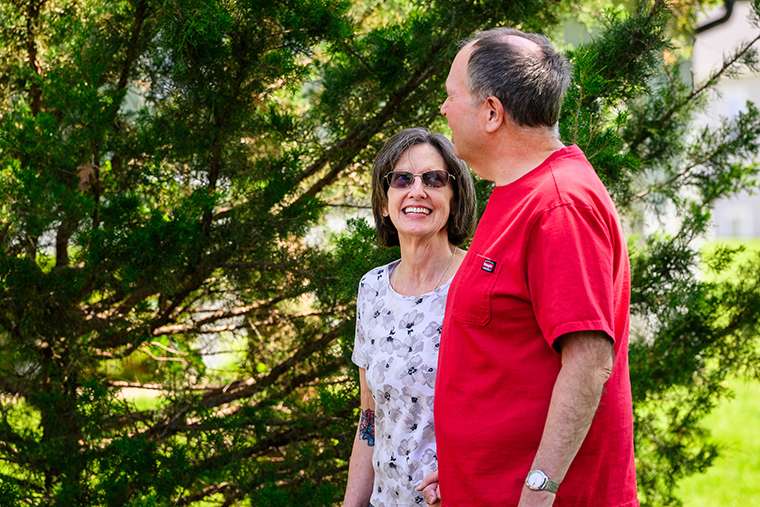
Becky’s doctors suspected her epilepsy was caused by scars in the temporal lobe of her brain, a condition called mesial temporal sclerosis. Surgery can be effective if doctors pinpoint the scarred area.
Because Becky’s scars were small and covered by healthy brain matter, they didn’t show up on less powerful MRI scans. Radiologist and 7T MRI physics researcher Jullie Pan, MD, PhD, and technicians Chris Jones, Caleb Minor and Erica O’Dell, carefully calibrated the highly sensitive scanner so that Becky’s care team could see scarring in her right temporal lobe.
“The sensitivity of a 7T MRI shows us not just the structure of the brain, but also blood flow and connectivity of electrical signals,” Pan said. “That means we can understand the brain, and its defects, in ways MRI didn’t show us before.”
After further testing showed surgery would not affect Becky’s memory or speech, Ashraf referred Becky to neurosurgeons Andrew Youkilis, MD and Bornali Kundu, MD.
“It was a relief to finally have an answer, because I’d had I don’t know how many MRIs, lots of testing,” Becky said. “The doctors at MU Health Care told me, ‘We want to help you get your life back, and we think this surgery is going to do that.”
Becky’s detailed MRI scans gave her surgeons a level of detail not previously available to help them plan and perform surgery.
“She is a good example of how a Level 4 epilepsy center works to help patients,” Kundu said. “We have the people and resources in place to recognize Becky’s seizures and pair that evidence with EEGs and MRI scans to line up and point to an answer.”
After a successful surgery in November of 2023, Becky returned home to Kirksville and hasn’t had a seizure since. She is working with Ashraf to step down from her seizure medications and has gone from seven medications to three.
“It's really changed my life, it really has,” Becky said. “I don’t have to worry about the side effects of medication anymore. I have my freedom now. I don’t have to be afraid.”
Finding an Answer for Dylan

Medications also weren’t working for Dylan. He was sleepy all day and stomach cramps kept him from eating, which didn’t help his energy levels. Dylan and his grandmother kept looking for a neurologist who would try something other than changing his medication. That search brought them to MU Health Care and Ashraf.
Unlike Becky, Dylan’s 7T MRI scan showed his seizures weren’t coming from a specific area of his brain. They were what epileptologists call generalized seizures, which can be more difficult to treat. And Dylan had already undergone surgery that was not successful in treating his epilepsy.
“In medicine, the absence of information is also very important, and in Dylan's case we did not see anything abnormal on MRI,” Ashraf said. “We knew surgery was not the best option for him.”
Generalized seizures are electrical storms that travel throughout the brain’s network. Research focused on treating these seizures has shown evidence that gentle electric shocks to areas of the brain that send out signals can prevent seizures from happening.
“We call the brain a network because it has so many connections and sends signals constantly,” Kundu said. “Generalized epilepsy is a disorder of that network. But by targeting specific hubs of activity, we can shock that hub to prevent an electrical signal from becoming a seizure.”
Because of his MRI results and inpatient EEG monitoring, the epilepsy team at MU Health Care recommended implanting a device to reduce the frequency and severity of Dylan’s seizures. This type of treatment is called deep brain stimulation, or DBS.
“In Dylan’s particular case, we implanted electrodes into part of his thalamus, which in simple terms is like the brain’s switchboard,” Youkilis said. “Delivering a shock there prevents the thalamus from sending out the electrical signals that cause his seizures. This treatment was not available five years ago, and Dylan was the first MU Health Care patient to receive this stimulation.”
To implant the deep brain stimulator, Youkilis and Kundu carefully guided those electrodes through Dylan’s veins to the correct spot in his brain — an area four millimeters across, about the size of a pencil eraser — and attached them to a generator which sits under the skin in his chest.
The generator also records electrical signals in Dylan’s brain, allowing his epilepsy team to understand which signals might be leading to his seizures.
The device has helped Dylan, who turns 20 in July of 2024, become more independent. He’s hitting the driving range at Oak Hills Golf Center in Jefferson City, practicing with his hybrid, and fishing on the lake with his uncle. His big goals are to get his driver’s license and go to school to become a welder.
“I feel excited and confident now that I have an answer,” Dylan said. “It's changed my life a lot.”
The Future of Epilepsy Care
As a Level 4 Epilepsy Center, MU Health Care offers the highest level of care and continues to push for better treatments for epilepsy. The 7T MRI scanner helped make that happen for Dylan and Becky.
“To be able to help connect the dots and give answers, it’s incredibly gratifying,” Ashraf said. “We want all our patients to be seizure-free and side effect-free, and when it does happen, and you see that change in their quality of life, it’s not something you take for granted.”



